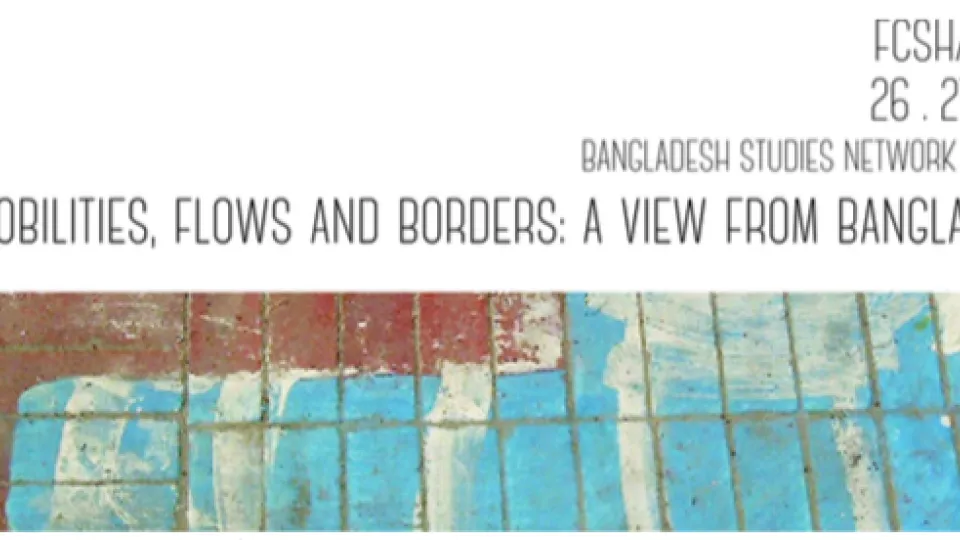Read his report from the meeting:
On 26 and 27 May 2016 the Bangladesh Studies Network organized its second annual meeting at the faculty of Social Sciences and Humanities (FCSH) at the New University of Lisbon. The meeting, a follow up on the first Bangladesh Study Network meeting held in Copenhagen with SASNET support in April 2015, consisted of three panel with presentations by scholars in the field of Bangladesh Studies presenting their latest work. The first panel, chaired by Manpreet Janeja from the University of Copenhagen consisted of three presentations. Willem van Schendel (University of Amsterdam) illustrated how place-making is an ongoing social process by taking the audience through four historical moments in the city of Chittagong, revealing the importance of rethinking place making and cities outside traditional boundaries. The second session, by Ellen Bal (VU University Amsterdam) and Eva Gerharz (Bochum University) presented their latest work on indigenous mobilities in Bangladesh. Bert Suykens from Ghent University continued with a paper on the workings of the party-state in Bangladesh, illustrated through a project on licenses for rickshaws and their regulation, revealing how the system of duplicates and non-state issued permits can be understood through systems of patronage and formal and informal links to the political establishment. The final presentation of the first day was a presentation by Adnan Hossain (University of Amsterdam) titled ‘Politics of recognition: Hijra, third gender and sexual rights in Bangladesh’.
The second day of the workshop chaired by José Mapril (New University of Lisbon), also the organizer of this year’s gathering, started with a panel that focused mainly on issues of governmentality, politics and power structures. However the first presentation, by Nayanika Mookherjee (Durham University), presented a part of her recent book in a presentation titled ‘Imagining the Birangona of the Bangladesh was of 1971’ in which she laid out the ways in which Birangona in Bangladesh are imagined. The day continued by a presentation by Dina Siddiqi (BRAC University, Bangladesh) who presented a paper titled ‘Governmentalizing Feminisms’. The final two presentations of the first panel were by David Lewis (London School of Economics) titled ‘Revisiting the politics of the local power structure: observations from ongoing fieldwork in three villages of Faridpur’ and a presentation by Aril Engelsen Ruud (University of Oslo) titled ‘Jamaat and Reform: Trends within an Islamist party’.
The final panel of the meeting, chaired by Jacco Visser (SASNET), consisted of three presentations investigating the transnational dimension of Bangladeshiness, included a presentation dealing with mutuality, future and remigration among Portuguese Bangladeshis (Jose Mapril, New University of Lisbon), migration experiences from Italian Bangladeshi Families in London (Francesco della Puppa, University of Venice) and a presentation on displacement among immigrant children from Bangladesh (by Elaine Andrade, University of Porto).
After the final session a closed discussion meeting took place to discuss future initiatives of the Bangladesh Studies Network and its aims and purposes. For now the next meeting of the network is likely to take place in Amsterdam in 2017.
